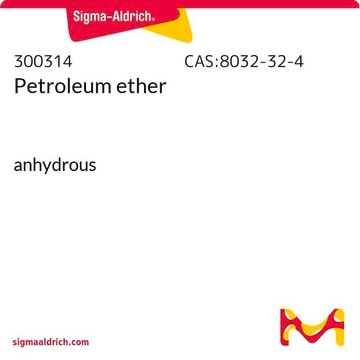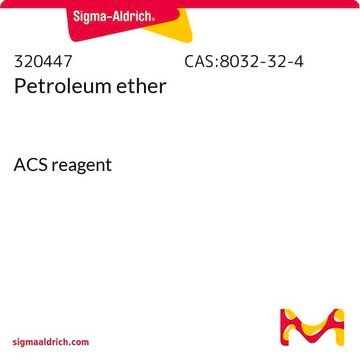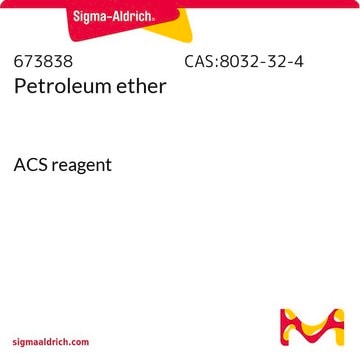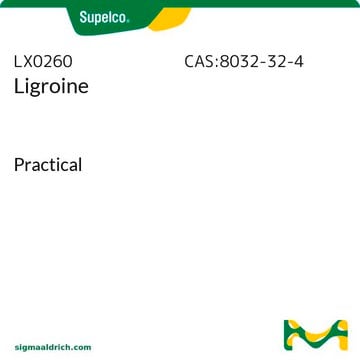Recommended Products
grade
spectrophotometric grade
Quality Level
vapor density
2.5 (vs air)
vapor pressure
25.8 psi ( 55 °C)
7.99 psi ( 20 °C)
form
liquid
autoignition temp.
475 °F
expl. lim.
8 %
technique(s)
UV/Vis spectroscopy: suitable
impurities
<0.020% water
evapn. residue
<0.0005%
refractive index
n20/D 1.363 (lit.)
bp
30-60 °C (lit.)
density
0.64 g/mL at 25 °C (lit.)
λ
H2O reference
UV absorption
λ: 210 nm Amax: 1.00
λ: 220 nm Amax: 0.30
λ: 230 nm Amax: 0.10
λ: 240 nm Amax: 0.05
λ: 260-400 nm Amax: 0.01
InChI
1S/C7H7.BrH.Mg/c1-7-5-3-2-4-6-7;;/h3-6H,1H3;1H;/q;;+1/p-1
InChI key
ZRJNGFJIBZKXTP-UHFFFAOYSA-M
Looking for similar products? Visit Product Comparison Guide
Signal Word
Danger
Hazard Statements
Precautionary Statements
Hazard Classifications
Asp. Tox. 1 - Carc. 1B - Flam. Liq. 2 - Muta. 1B
Storage Class Code
3 - Flammable liquids
WGK
WGK 2
Flash Point(F)
-56.2 °F - closed cup
Flash Point(C)
-49 °C - closed cup
Certificates of Analysis (COA)
Search for Certificates of Analysis (COA) by entering the products Lot/Batch Number. Lot and Batch Numbers can be found on a product’s label following the words ‘Lot’ or ‘Batch’.
Already Own This Product?
Find documentation for the products that you have recently purchased in the Document Library.
Customers Also Viewed
Our team of scientists has experience in all areas of research including Life Science, Material Science, Chemical Synthesis, Chromatography, Analytical and many others.
Contact Technical Service











